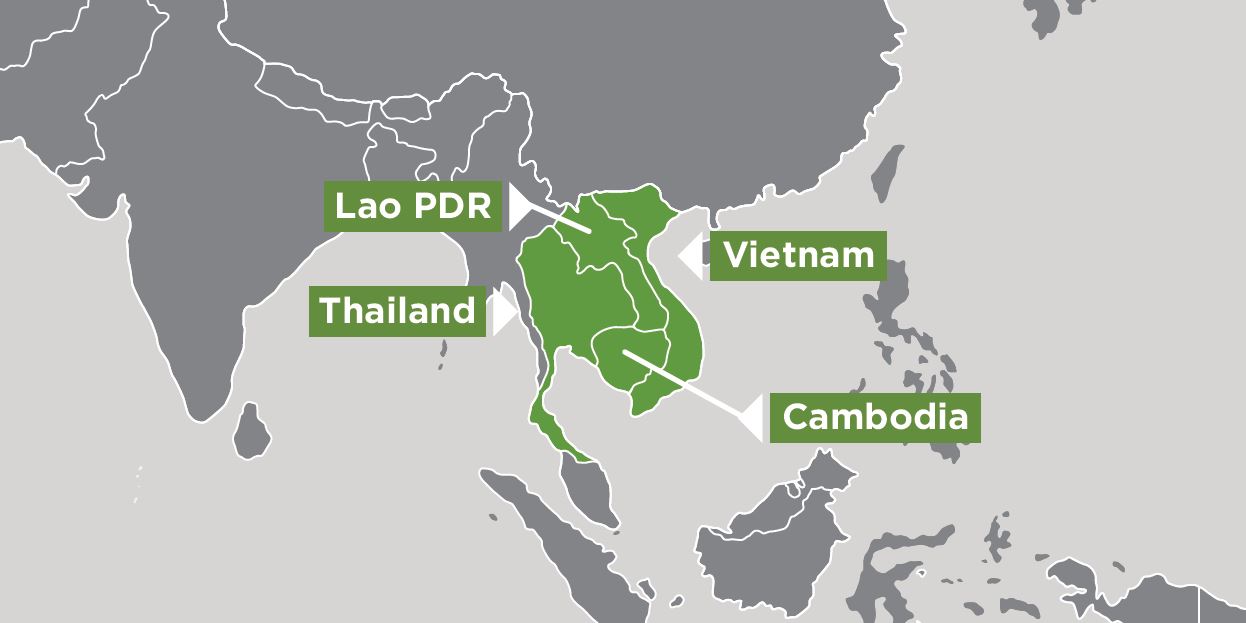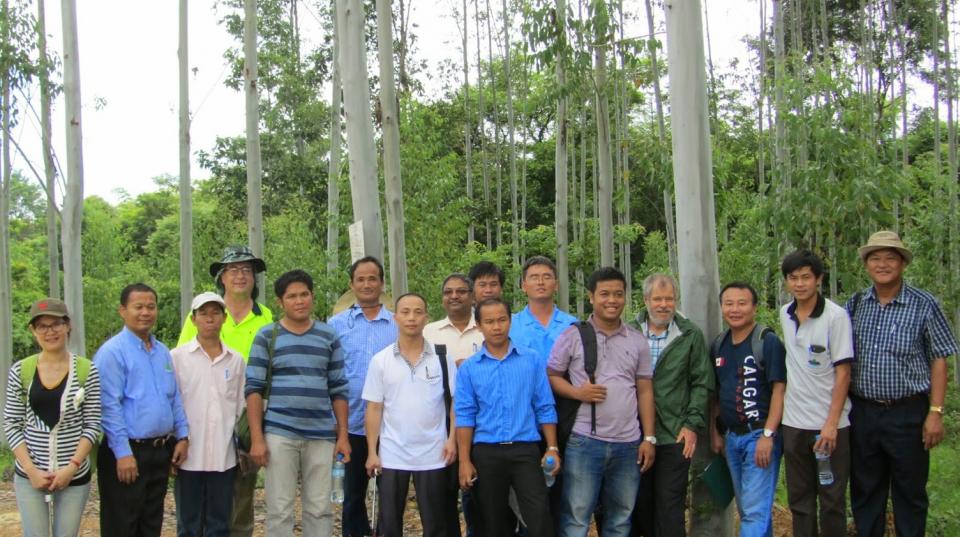Overview
This project to develop effective biocontrol mechanisms against insect pests found in Eucalypts benefits poor rural communities in the Mekong region. Building on existing international knowledge and experience, we’re applying classical biological control to achieve better economic, social and environmental outcomes.
The Greater Mekong region has lost 30% of its forests to agriculture, fuelwood collection and mining. Eucalypts are among the four most important forest plantation species and are being seriously damaged by a gall wasp pest.
First detected in the Middle East and the Mediterranean regions in 2000, the wasp has spread to more than 30 countries, causing serious damage to nurseries and young plantations in Vietnam, Thailand, Cambodia and Laos.
Governments are now working to stem this forest loss through large-scale reforestation projects and plantation expansion and, classical biological control.
Conventional pest control, such as the use of pesticides and germplasm is costly, ineffective in the field, subject to different resistance means, and not sustainable. Only classical biological control, as part of an effective integrated pest management strategy, offers a relatively low-cost and proven option to manage pests, while promoting sustainable forest management.
Project outcomes
- The distribution of the Leptocybe gall wasp and existing parasitoids has been mapped in each of the Mekong partner countries. The presence of two species of Leptocybe in the region has been confirmed.
- The project has identified that an Australian-origin parasitoid, Quadrastichus mendeli, is widespread in the region and providing variable levels of gall wasp control.
- Networking between our partner countries has been enhanced, with greater awareness of the importance of forest health to overall plantation productivity.
- Capacity in the region in forest health surveillance, research, basic diagnostics and forest pest collection curation to assist in managing current and future problems has been significantly enhanced.
- Information and data is available to the public through regional workshops, field days, website, progress reports, scientific journal papers and presentations at national and international conferences.





